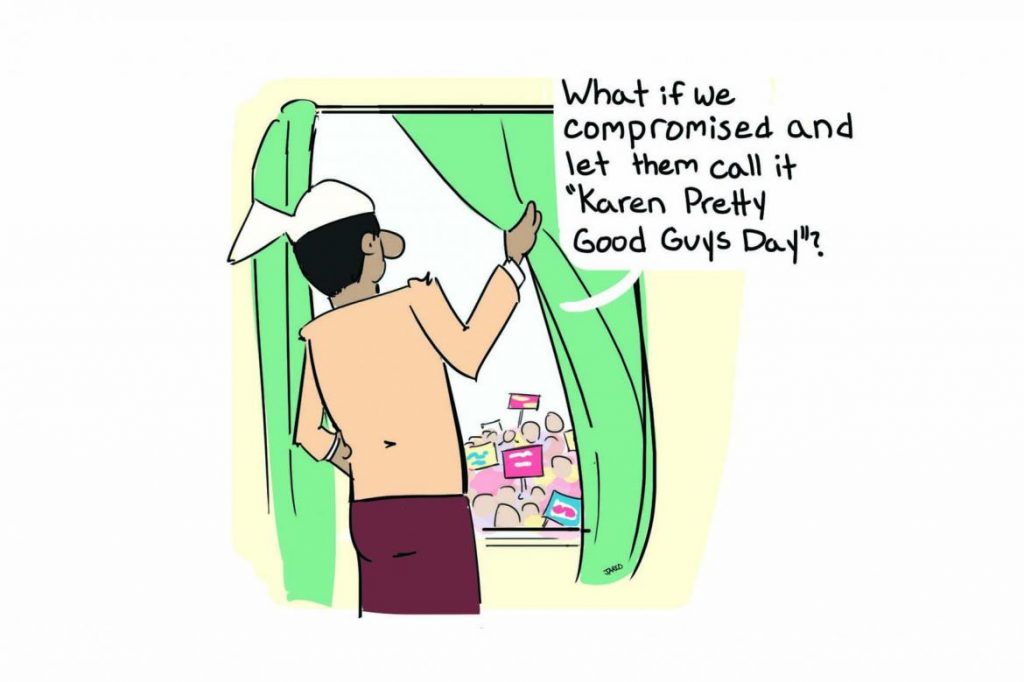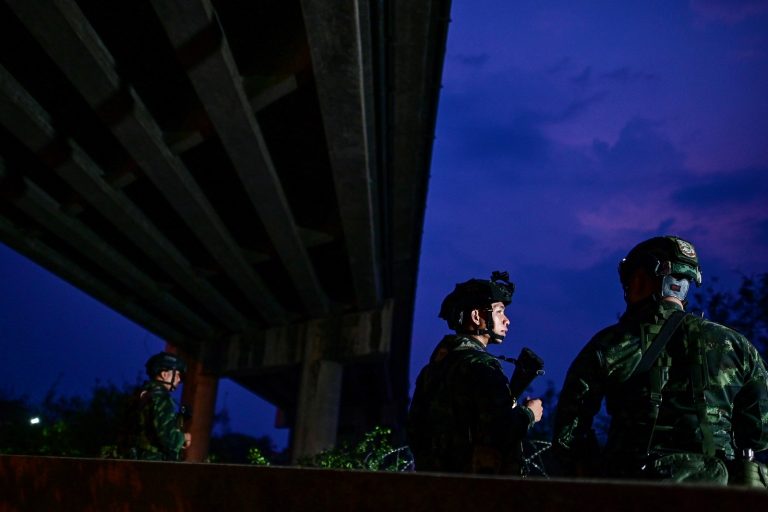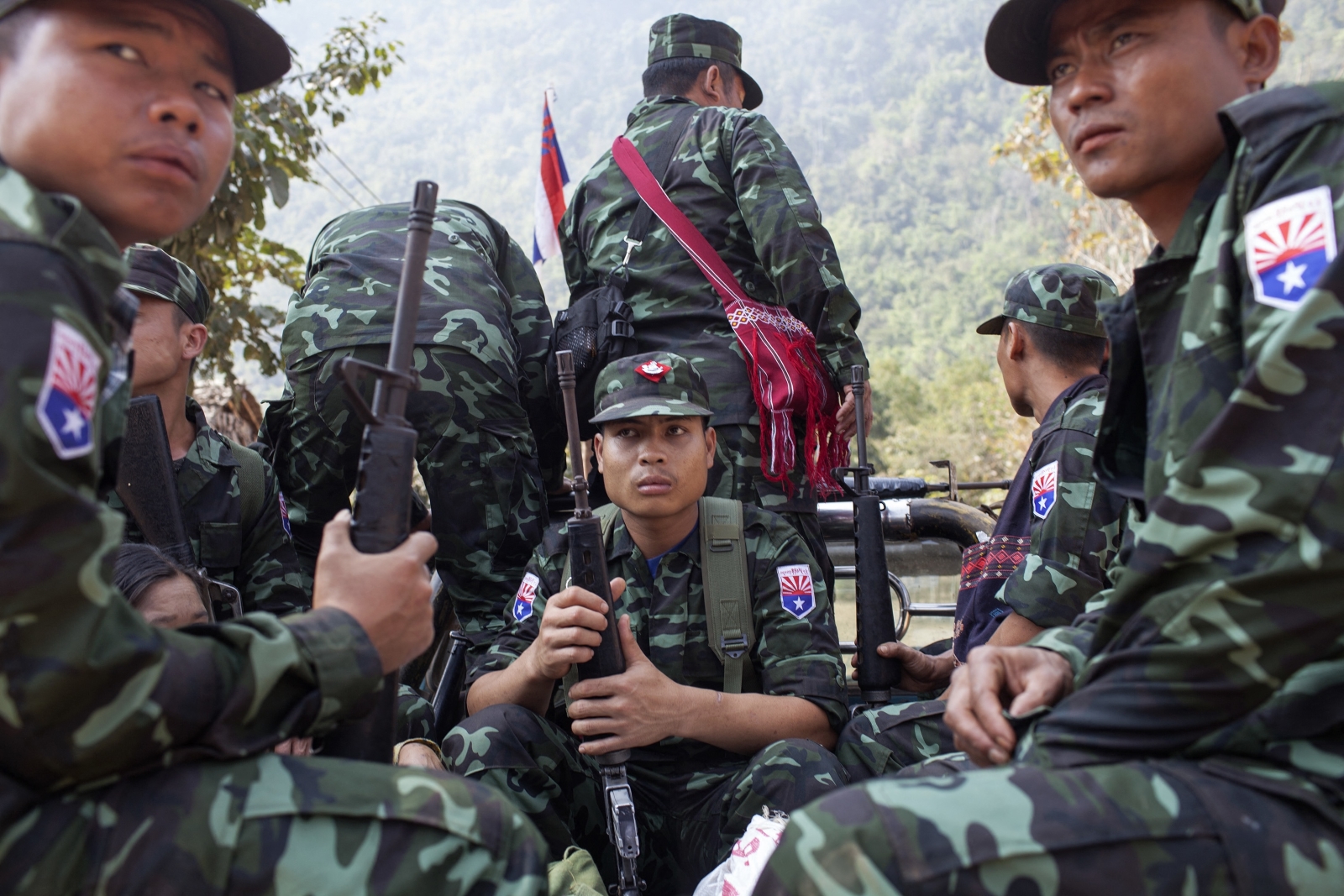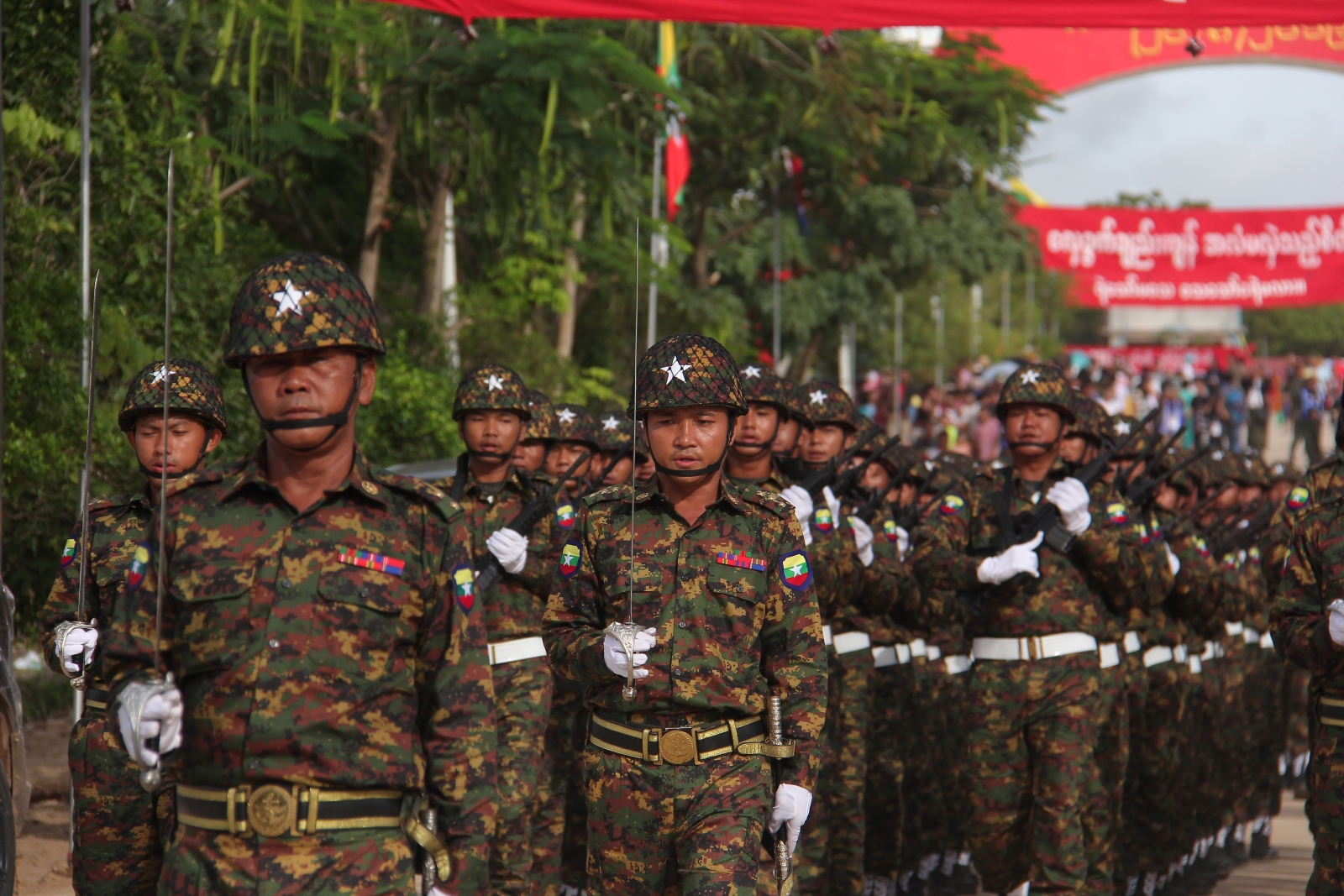On October 2, hundreds of people – possibly even 1,000 – gathered in Maha Bandoola Park in Yangon to show support for activists Naw Ohn Hla, Saw Thein Zaw Min and Saw Albert Cho.
Just hours earlier, they had been sentenced to 15 days’ imprisonment for organising a ceremony to observe Karen Martyrs’ Day. The day marks the anniversary of the deaths of Karen National Union founders Saw Ba U Gyi and Major-General Sai Kay, who were killed in a Tatmadaw ambush in 1950.
The trio were released immediately after the sentencing, having already served 22 days. But the outcome angered ethnic rights activists, who said it was further evidence of the government’s continued oppression of ethnic minorities.
Why were they detained and charged? Yangon Region Chief Minister U Phyo Min Thein had prohibited them from using the word “martyr” at the event, so they changed the location from North Dagon, on the city’s outskirts, to City Hall and Maha Bandoola Park, right in the centre.
Moving the event was a provocative step. The government took the bait.
Ohn Hla has been arrested and imprisoned many times over the past three decades. She is unlikely to shy away from a fight. Another stint in prison was always going to be a possible outcome.
Support more independent journalism like this. Sign up to be a Frontier member.
Lest we think this was a one-off, though, the regional authorities doubled down, filing charges against three women who had protested during a September 27 court hearing for the three detained activists. This story is likely to rumble on: more protests, more charges, more fiery statements.
The whole episode underscores the government’s intolerance towards expressions of ethnic minority culture and history – in particular, those that deviate from the official narrative of 135 ethnic groups living in harmony since time immemorial, which, as the lead article in the October 10 issue of Frontier shows, is a myth. But it also reflects the government’s remarkable ability to pick pointless political battles.
What would have been a relatively small event on Yangon’s outskirts was transformed into a series of demonstrations in the city’s heart that garnered major press coverage.
The ruling National League for Democracy has form here. It has provoked stand-offs with local ethnic communities elsewhere in the country by trying to erect statues of Bogyoke Aung San, the independence hero and father of NLD leader Daw Aung San Suu Kyi. Statues have already gone up in Mon, Kayah and Kachin states, while plans are underway for a further effigy in Chin State.
In Myitkyina, angry Kachin activists defaced a statue with paint, while police forcibly broke up demonstrations in Loikaw after failed attempts to negotiate with protesters.
While many people across Myanmar have great respect for Aung San, the statues are often seen as evidence of the “Burmanisation” of ethnic minority areas. They are also considered insensitive to the suffering of ethnic minorities, who feel their aspirations have never been fulfilled by Bamar-dominated central governments.
Not only has the NLD ignored these objections, leading to further confrontation, it has allowed it to happen again and again.
Before the statues became an issue, it was the NLD’s naming in early 2017 of a bridge in Mon State after the independence hero that sparked mass protests and possibly cost it a seat in a by-election.
Perhaps NLD leaders figured that because many people in ethnic minority areas voted for them in 2015, they had a free rein to do what they wanted.
If that was the case, they should have learned from the bridge-naming fiasco to take a more sensitive approach. Clearly that hasn’t happened.
Myanmar is about to enter an election year. Ethnic political parties have been tipped to perform better at the polls than in 2015, in part because many of them have reached agreements to merge and create a unified electoral front within different states.
But by picking unnecessary battles with ethnic activists, the government is also laying fertile ground for these resurgent ethnic parties to win over voters who plumped for the NLD four years ago.







